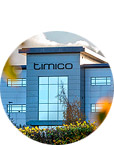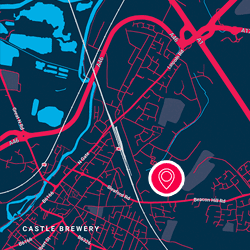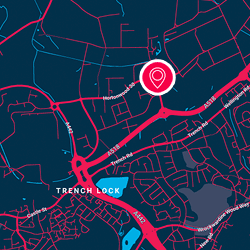BLOG
5 Reasons why Businesses are turning to Hybrid Cloud
Cloud solutions are increasing in popularity at a steady rate, as many companies reform their business strategies in order to adopt modern hybrid cloud infrastructures. This allows the business to remain relevant, competitive, and grow with modern technology, whilst reducing the risk of falling behind. For many businesses, the cloud has become an important stepping stone in moving from traditional, or outdated, legacy systems and over to an agile structure.
Businesses have a choice between cloud solutions, and invest both time and money deciding which offer best suits their requirements. Whilst the cloud is taking over, many people still hold reservations about allowing external systems host their applications and data. Although striking the balance between controlled private cloud and public clouds can be difficult, hybrid cloud offers an array of benefits without being left feeling that security or compliance have been compromised. Here are the 5 main reasons businesses are adopting a hybrid approach to their infrastructure:
Why Hybrid Cloud Demand is Growing.
1. Security Compliance
One major challenge that many businesses face with public cloud is the security of their data and applications. Public cloud can be accessed over a standard internet connection, with no substantial control over who can access important information, or where. Not all clouds are made equal, and certain applications that require a level of security compliance, or hold sensitive data, are not always necessarily secure on the public cloud. Certain businesses must demonstrate a level of security/compliance due to the industry they work in and thus have no choice but to invest in private solutions. Here, another issue arises, as private clouds are very limited in terms of flexibility and access, which can be problematic for a business whose employees value the ability to work from home, or who travel a lot between locations while working.
Hybrid cloud tackles this problem, and provides a solution to both issues, and in essence offering a best of both approach for a business. Critical data and applications can be based in the security of the private cloud, and ran through a private connection specifically built to the business’s requirements. Equally, a business can continue using a public cloud to share and store information that they need in their daily routine, thus creating a best of both approach.
2. Flexibility
As previously mentioned, solely using private cloud can be very limiting for a business. Increased security means that employees cannot access the private cloud or business functions through unknown devices, limiting their ability to work remotely on the move or from home. This can hinder the productivity of a business, and contrasts with the kind of flexibility a business can achieve with public cloud.
Through a hybrid environment, a public cloud solution can be used for employees who want to share and store data in a form that is accessible from anywhere, whilst a private cloud can host critical security compliant applications. This offers flexibility to businesses looking for both security and mobility, and reduces the need for businesses to invest in a costly in-house infrastructure for their security reliant applications.
3. Changing Existing Infrastructures
A business can easily suffer financial, competitive, and reputation-based loses if their services are down, and cannot afford to halt their day-to-day running in order to make time for transitioning their system to the cloud. Additionally, businesses tend to have long-term contracts on their infrastructure and thus are not in a position to make their business entirely cloud-based.
Hybrid cloud can offer an alternative system of integrating existing infrastructures with the cloud, limiting downtime, and quickly offering a new solution. This slows down the transition process and gives a business time to train employees, move certain aspects of the business to the cloud, and continue running the business. Existing infrastructures do not need to be changed, however, a business can adopt a newer innovative cloud system.
4. Customer Expectations
Remaining up-to-date with rapidly-evolving technology is essential for many businesses in order to stay ahead. We are living in the digital age, where businesses need to be customer-centric in order to remain competitive against industry disrupters. If a business cannot adjust to extra demand from customers, they run the risk of losing valuable business. In order to remain competitive and relevant, a business should invest in a cloud system that is flexible, scalable and caters to all their business needs.
Many businesses rely on the ability to scale their business up or down, depending on customer demand. For example, a retail business that wants more space during the Christmas period, and wants the ability to easily return back to normal after the holiday peak is finished. This is an ability that traditional legacy systems do not have, meaning that for many businesses, transitioning to the cloud is essential in order to keep up with demand. Through a hybrid cloud environment, businesses are able to scale their requirement up or down as they require, being able to act reactively to changes in demand, whilst still remaining in control of their physical infrastructure.
5. Simplifying Costs
The combination of both customer-owned storage with public cloud resources allows businesses to maximise their existing IT investments, whilst also getting to benefit from the latest and greatest in cloud computing.
Hybrid cloud environments allow businesses to leverage the resources they already have, without the requirement to adopt new tools or splash out on new hardware. When using both a mix of private and public clouds, the upfront costs of installing in-house technology can be removed, or combined with a simple monthly payment, in order to simplify costs. What’s more, a majority of public cloud services charge on an operational expenditure model, meaning businesses only pay for what they use on a monthly basis.
You can learn more about Timico’s Cloud and Hosting capabilities through our guide; ‘Cloud and Hosting: A Guide to Making the Right Choice‘ or by joining one of our webinars here.

Timico
We deliver Connectivity, UC&C, Cloud & Hosting, Security and IT Managed Service Solutions to our customers, through Service Operations based in Newark, Winnersh, Telford and London.










